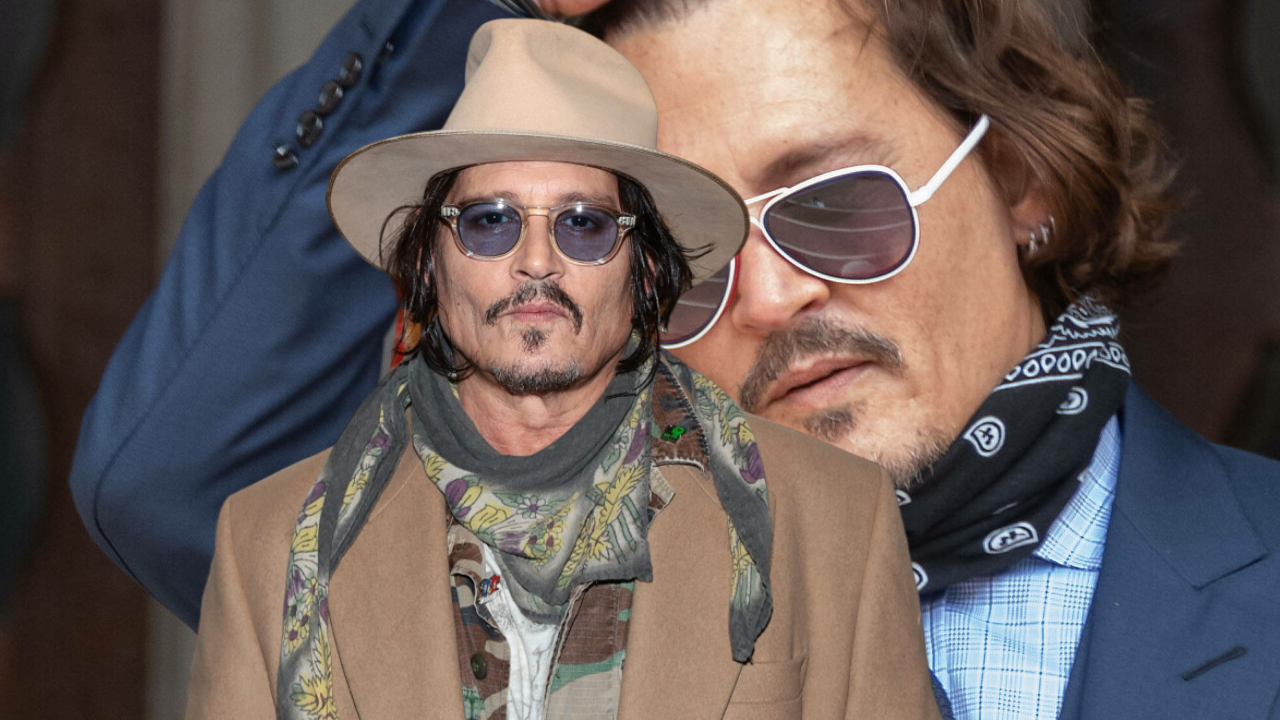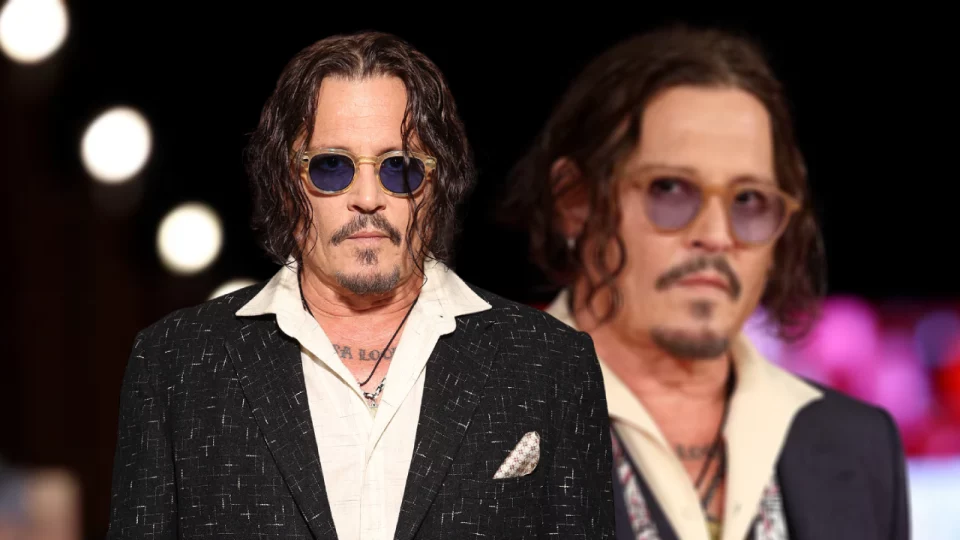Two years after the widely publicized and polarizing legal battle between Johnny Depp and his ex-wife, Amber Heard, Depp has expressed a striking stance toward his experiences: he harbors no ill feelings toward anyone involved. While the legal process placed his personal life under intense media scrutiny, Depp’s perspective offers a lesson on resilience and forgiveness that transcends celebrity culture and speaks to the broader human experience of overcoming hardship.
The trial, involving accusations of domestic violence and defamation, captured global attention and divided public opinion. It showcased both parties’ private lives, leaving them vulnerable to countless public opinions and critiques. However, Depp’s approach to moving forward is notable, especially given the media storm and emotional toll involved.
In an interview with The Hollywood Reporter about his upcoming film, Modi: Three Days on the Wing of Madness, Depp discussed how he’s chosen to let go of animosity and avoid carrying “baggage.” This response speaks volumes about personal growth and the power of reframing difficult experiences.
Table of Contents
A Unique Approach to Letting Go
For Depp, holding onto bitterness or anger after such a harrowing ordeal is not a sustainable choice. In his interview, he explains his stance, saying, “I don’t have any ill feelings toward anyone … I don’t have this great reserve of hatred, because hatred requires caring. Why carry that baggage?” His words encapsulate a view that challenges the common perception of holding grudges as a natural reaction to being wronged. Depp’s point—that harboring hatred demands emotional investment and drains energy—is not only mature but also instructive for those aiming to move past conflicts in their own lives.
The actor’s approach suggests that emotional resilience does not come from denying past hardships but from accepting and learning from them. Reflecting on the court battle and the numerous “hit pieces” written about him during that time, Depp recalls the experience with an almost detached humor, noting that it “simply just was, and it simply just is.” His words emphasize a level of acceptance that allows him to view the past objectively without becoming overwhelmed by the pain or negativity attached to it.
Depp’s approach is one that many can find relatable, even if on a smaller scale. When people experience public or personal criticism, whether in the workplace, within family dynamics, or social circles, the instinct might be to defend themselves or to internalize negative sentiments. But Depp’s example illustrates that choosing acceptance over bitterness offers a path to personal peace.
Turning the “Soap Opera” into Personal Growth

Reflecting on the impact of the trial, Depp likened his life at that time to a “soap opera.” The media circus surrounding his legal battles with Heard was relentless, with daily reports and opinions painting him in various lights. This overwhelming attention had the potential to destabilize anyone in his position. Still, Depp’s reflections show that he has found a way to distance himself from these events and view them as part of his life story rather than a defining chapter.
Depp’s choice to look back without malice suggests a significant lesson in resilience: instead of allowing a painful experience to become a recurring burden, he has reframed it as a learning opportunity. “Everything that we experience, whether you’re given a snow cone or walking your dog, you learn something somewhere along the way,” he shared. This comment implies that every experience, even a challenging one, contributes to personal growth. For Depp, the ordeal offered insights and resilience that may influence his future career and personal decisions.
In particular, the transformation of a public “soap opera” into a narrative of learning highlights the power of perspective. Many people might feel as though they are living out their own “soap operas” in the face of adversity. Still, Depp’s approach shows how a shift in perspective can help individuals regain a sense of agency over their stories and prevent negative experiences from overshadowing the rest of their lives.
A Glimpse into Depp’s Past and Professionalism on Set
Depp’s focus on professionalism and resilience has not always been consistently acknowledged by everyone he has worked with, however. Actress Lola Glaudini, who appeared with Depp in the 2001 film Blow, recalled an incident where Depp allegedly berated her on set for disrupting a scene with laughter. According to Glaudini, Depp was upset and expressed his frustration in a strong manner, making her feel intimidated and embarrassed. While Depp’s representatives later addressed her claims by stating that he “always prioritizes good working relationships with cast and crew,” the incident raised questions about the pressures that actors face on set and the complexity of maintaining professionalism.
Depp’s career, like any in the entertainment industry, has likely involved moments of stress and frustration, as well as the need to adapt to the dynamics of each project. His alleged outburst with Glaudini serves as a reminder of the intense pressure that actors often work under. However, it’s also a testament to Depp’s evolution as he looks back on his career and personal journey with a sense of humility and acceptance. Although past conflicts, like the one with Glaudini, add complexity to Depp’s story, they also underline the human aspect of growth and learning that Depp seems to embrace.
The Broader Implications of Depp’s Perspective on Life and Conflict
Depp’s reflections on the Amber Heard trial and his experiences in Hollywood offer broader insights into how to deal with conflict and hardship. In a world where grudges and animosity can feel natural, Depp’s choice to move forward without “a great reserve of hatred” is both unusual and refreshing. His perspective aligns with ideas in psychological research that suggest forgiveness and acceptance are crucial for emotional well-being. Studies have shown that individuals who are willing to let go of anger and resentment tend to experience lower stress levels, better mental health, and even improved physical health.
The idea that hatred requires emotional investment—and is therefore burdensome—is central to Depp’s outlook.
By detaching himself from this emotional weight, he embodies an approach that anyone can apply in situations of personal conflict. Whether the conflict is on the scale of a high-profile court case or a smaller personal disagreement, the act of choosing to let go of resentment can be liberating. Depp’s story encourages a shift from viewing forgiveness as an act for others to understanding it as a self-protective mechanism.
Moreover, Depp’s reflections raise questions about how society views and processes public figures’ private lives. The media’s role in amplifying Depp’s conflicts with Heard turned their private lives into public discourse, creating a situation where judgments were made without full knowledge of the individuals involved. Depp’s decision not to hold grudges may be partially driven by a desire to regain control over his narrative, to remember his life beyond the scandalous headlines.
